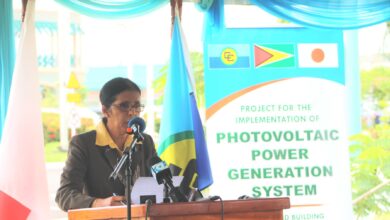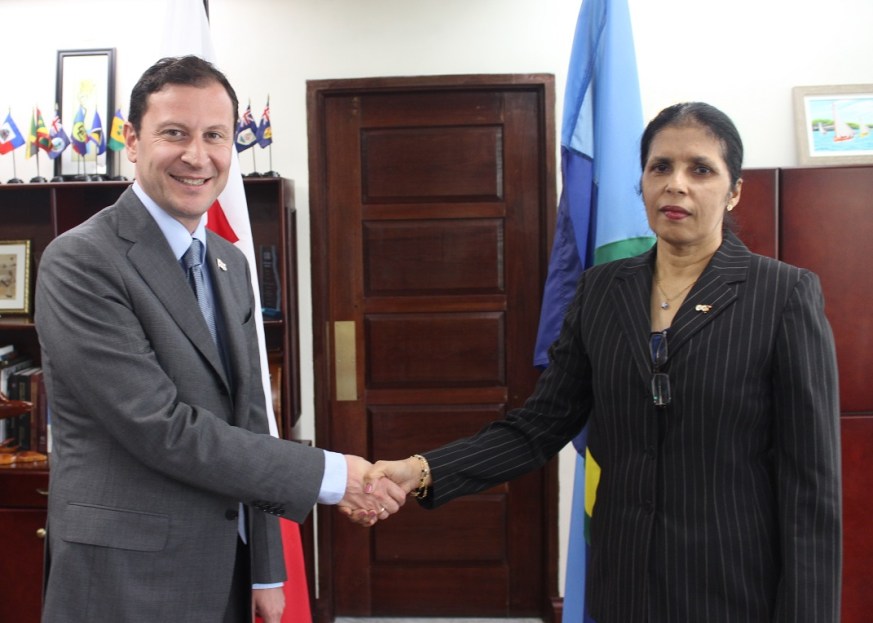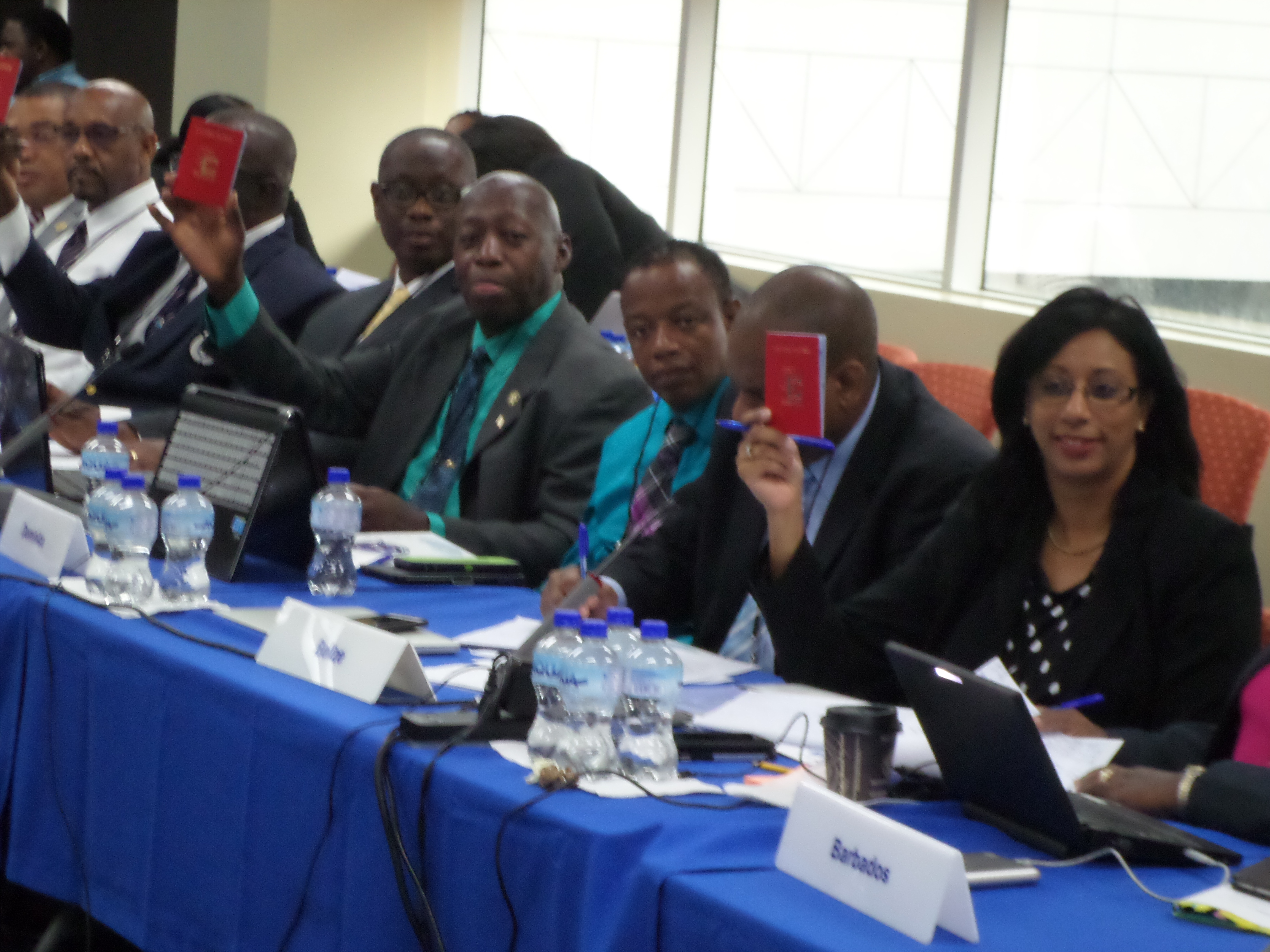She was speaking on Tuesday at a luncheon held in commemoration of International Women’s Day at the CARICOM Secretariat in Turkeyen, Guyana. The event was planned and executed by the CARICOM Secretariat Staff Association.
The Deputy Secretary-General said many changes were necessary for the empowerment of women but emphasized that men should be proud to support their female counterparts including their mothers, sisters, daughters and wives to make progress in life.
The investment you make will multiply and that will remain forever and we often forget that” she said.
She also told the women that they have the ability to do a lot but that they needed to change if they want to see change. She said there were little things that can be changed that will have an impact and will influence the way children mirror themselves. She encouraged everyone to set the right example within families and communities. The burden cannot be placed only on the youth to change, she said.

Keynote speaker and Senior Project Officer in the Technical Action Service Unit at the CARICOM Secretariat Ms. Olga Konyo Addo, urged the Secretariat to reinstate the gender desk. She also recommended that the CARICOM Secretariat should be established as “an employer of choice and a leader in gender equality”.
Ms. Addo, like the Deputy Secretary-General, was also of the opinion that the issue of gender equality is not ‘for women only’.
It in no way seeks to discriminate against males and ignore their contribution and support. Men need to be actively involved in the solution to gender equality, she said
The 2016 theme for International Women’s Day is “Planet 50-50 by 2030: Step It Up for Gender Equality”
The United Nations began celebrating International Women’s Day (IWD) on 8 March during International Women’s Year 1975. Two years later, in December 1977, the General Assembly adopted a resolution proclaiming a United Nations Day for Women’s Rights and International Peace to be observed on any day of the year by Member States, in accordance with their historical and national traditions.
International Women’s Day first emerged from the activities of labour movements at the turn of the twentieth century in North America and across Europe. Since those early years, International Women’s Day has assumed a new global dimension for women in developed and developing countries alike. The growing international women’s movement, which has been strengthened by four global United Nations women’s conferences, has helped make the commemoration a rallying point to build support for women’s rights and participation in the political and economic arenas.
Increasingly, International Women’s Day is a time to reflect on progress made, to call for change and to celebrate acts of courage and determination by ordinary women who have played an extraordinary role in the history of their countries and communities.





